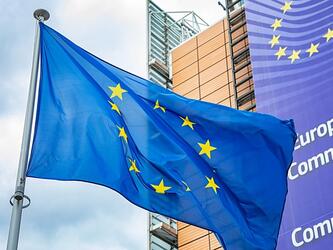TNS quantifies ‘irresistibility’
During a five year study into brand irresistibility, TNS developed an Irresistibility Quotient (IQ) score, in order to calculate how appealing a brand is by gauging how well it meets the needs of its target consumers. The study involved analysing thousands of brands across 40 countries, and resulted in TNS identifying eight key drivers of irresistibility:
- Know-how
- Momentum
- Differentiation
- Emotion
- Symbolism
- Nexus
- Alignment
- Unity
“Becoming one of the world’s strongest, most popular and recognisable brands does not happen by accident,” said Roz Calder, director of TNS’s NeedScope International. “These brands have scrutinised and applied the drivers of their irresistibility. These traits are deliberately and determinedly engineered over time, to make the brand an instinctive choice, and to make competing with it impossible.
“Rivals in their categories have two choices: either they can focus on becoming irresistible themselves, or they must be prepared to get out of the way.”
More information on the research can be found here.

We hope you enjoyed this article.
Research Live is published by MRS.
The Market Research Society (MRS) exists to promote and protect the research sector, showcasing how research delivers impact for businesses and government.
Members of MRS enjoy many benefits including tailoured policy guidance, discounts on training and conferences, and access to member-only content.
For example, there's an archive of winning case studies from over a decade of MRS Awards.
Find out more about the benefits of joining MRS here.














1 Comment
Ken Roberts
12 years ago
What a perfectly irresistible made-up measure for a jolly good belly laugh. And how might this advance the drive for more effective marketing? I blame the “success” of David Aaker and his made up measure of brand equity for this tiresome, never ending stream of made-up measures. Just what marketing science needs, another nonsense dependent variable? Whatever happened to SALES as a dependent variable? If research agencies had the courage they would put up sales as the dependent variable and mathematically show the causal drivers including both thoughts and feelings as behavioural drivers. Forethought routinely predicts change in market share based on these drivers with correlations of better than .8. I note that emotion is one measure. Emotion can be measured either physiologically or implicitly using time based techniques – if a respondent has provided their response in under one-second we can assume an implicit measure. My bet is TNS did neither. The example of “reassurance” and “control” as measures of emotions was worth a solid chuckle. TNS would do well to consult the academic literature on what are the primary emotions and how do they drive consumption behaviour. Now, excuse me while I return to the serious business of helping brands be successful.
Like Reply Report